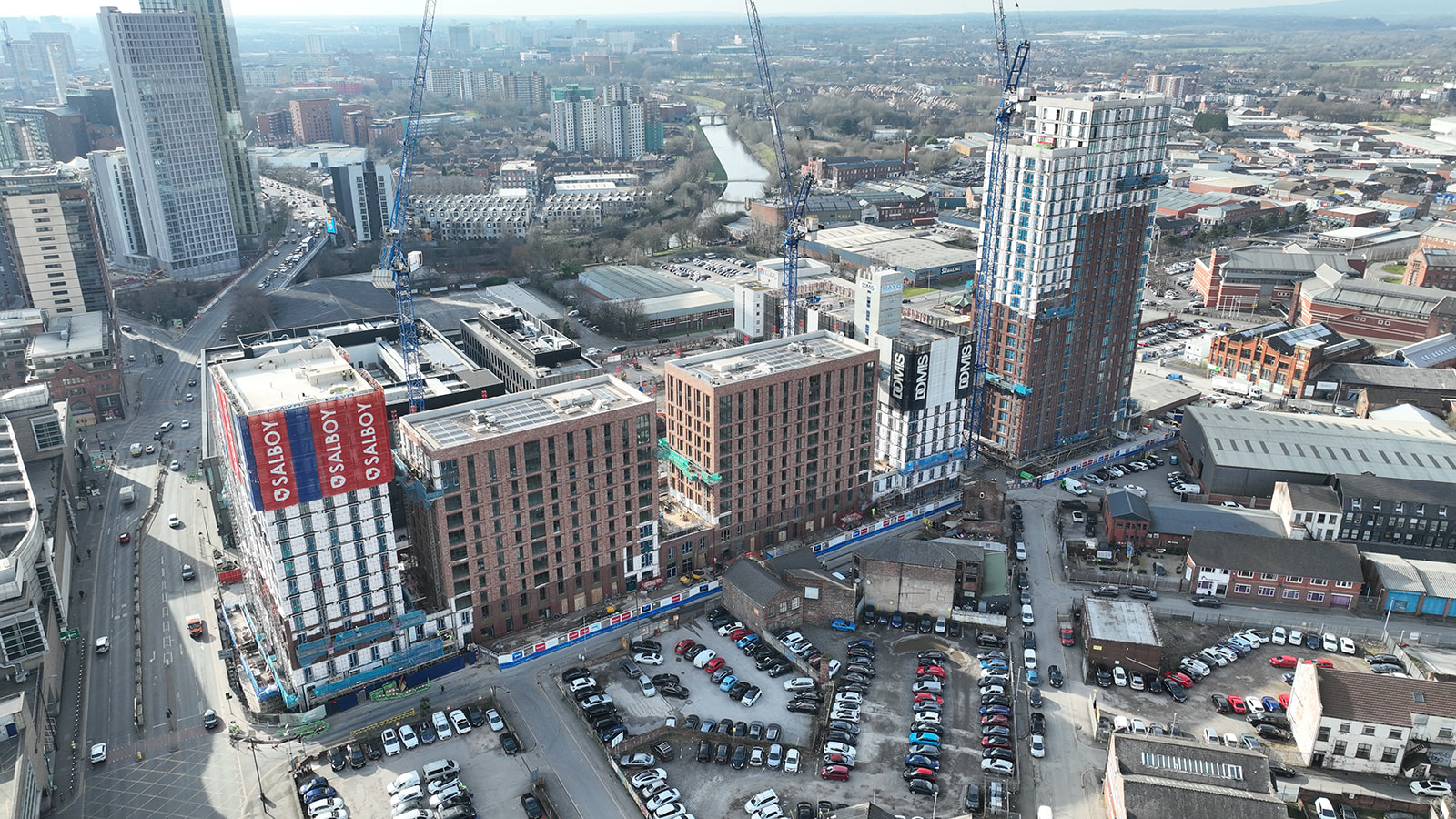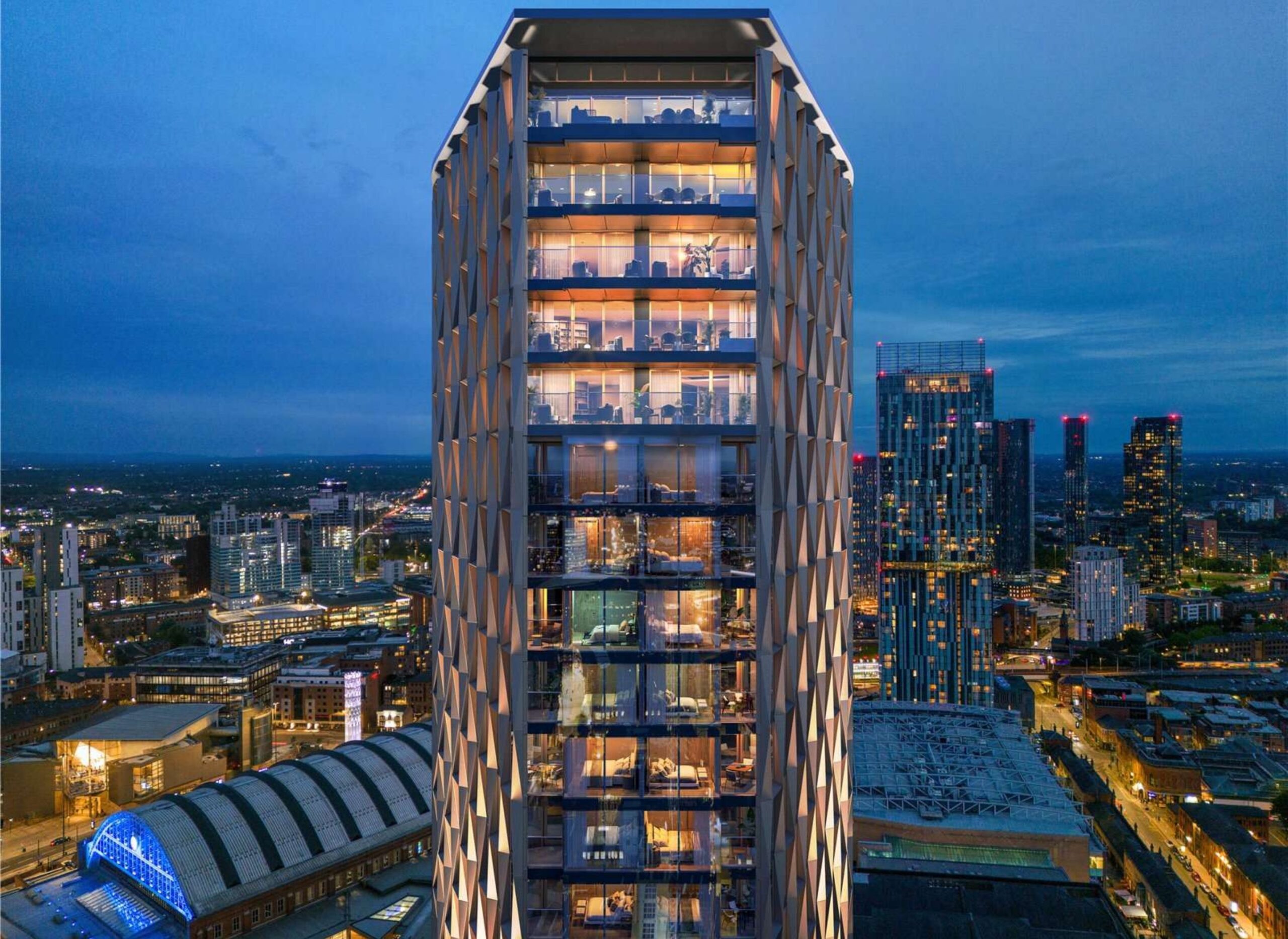Manchester has long been a city of transformation, evolving from its industrial roots into a thriving hub of culture, business, and innovation. One of the most exciting regeneration projects currently underway is the Waterhouse Gardens development, a landmark initiative that is set to create a brand-new neighbourhood in the heart of the city. This ambitious project will not only reshape Manchester’s skyline but also bring significant economic benefits, attracting investment, creating jobs, and enhancing the city’s appeal as a place to live and work.
A Vision for Waterhouse Gardens
Waterhouse Gardens is a mixed-use development that aims to redefine urban living in Manchester. Situated on the historic site of the former Boddingtons Brewery, this project will introduce 556 high-spec residential units across five distinctive buildings, including a 26-storey tower. The development is designed to seamlessly integrate with Manchester’s existing infrastructure while introducing new commercial spaces, green areas, and high-end amenities.
Key Features of Waterhouse Gardens
- Residential Units: A mix of apartments, duplexes, and penthouses, catering to a diverse range of residents.
- Commercial Space: 30,000 sq. ft of retail, dining, and office spaces, fostering business growth.
- Green Spaces: Landscaped gardens and public areas to enhance urban sustainability.
- Luxury Amenities: Swimming pools, sports courts, co-working spaces, and entertainment facilities.
- Connectivity: Close proximity to Manchester Victoria Station, AO Arena, and major city attractions.
This development is not just about constructing buildings—it’s about creating a thriving community that blends history with modernity, offering residents and businesses an unparalleled urban experience.
Economic Benefits of Waterhouse Gardens
The transformation of Waterhouse Gardens is expected to bring significant economic advantages to Manchester. From job creation to increased property values, this development will contribute to the city’s financial growth in multiple ways.
1. Boosting Employment Opportunities
One of the most immediate economic benefits of Waterhouse Gardens is the creation of jobs. The construction phase alone has generated employment for hundreds of workers, including architects, engineers, and tradespeople. Once completed, the development will continue to support jobs in retail, hospitality, and property management.
2. Attracting Investment and Business Growth
With 30,000 sq. ft of commercial space, Waterhouse Gardens is set to become a business hub. The inclusion of boutique traders, independent eateries, and office spaces will attract entrepreneurs and established businesses alike. This influx of commercial activity will stimulate the local economy, increasing revenue for both small businesses and larger corporations.
3. Increasing Property Values
Manchester’s property market has been experiencing steady growth, and developments like Waterhouse Gardens further boost real estate values. The introduction of high-spec apartments and penthouses will elevate the desirability of the area, leading to increased demand and higher rental yields for investors.
4. Enhancing Tourism and Hospitality
Manchester is already a popular destination for tourists, and Waterhouse Gardens will add to its appeal. The development’s proximity to AO Arena, Manchester College, and cultural hotspots makes it an attractive location for visitors. Increased foot traffic will benefit local businesses, hotels, and entertainment venues.
5. Strengthening Infrastructure and Connectivity
The regeneration of Waterhouse Gardens is not just about buildings—it’s about improving infrastructure. The development will enhance transport links, pedestrian pathways, and public spaces, making Manchester more accessible and efficient. This improved connectivity will encourage further investment and urban expansion.
Creating a New Neighbourhood in Manchester
Waterhouse Gardens is more than just a development—it’s the foundation of a brand-new neighbourhood within Manchester’s city centre. By bridging the gap between Greengate and N.O.M.A, this project will connect communities, fostering a sense of belonging and urban vibrancy.
1. A Community-Centric Approach
Unlike traditional developments that focus solely on residential and commercial spaces, Waterhouse Gardens prioritises community engagement. The inclusion of public gardens, co-working spaces, and leisure facilities ensures that residents and visitors can interact, collaborate, and enjoy a high quality of life.
2. Sustainable Urban Living
Manchester has been making strides in sustainable development, and Waterhouse Gardens aligns with this vision. The project incorporates green spaces, energy-efficient buildings, and eco-friendly amenities, promoting a healthier and more sustainable urban environment.
3. A Cultural and Social Hub
With its boutique shops, independent restaurants, and entertainment venues, Waterhouse Gardens is set to become a cultural hotspot. The development will host events, exhibitions, and social gatherings, enriching Manchester’s artistic and social scene.
A Game-Changer for Manchester
Waterhouse Gardens is poised to transform Manchester’s city centre, creating a dynamic and economically prosperous neighbourhood. From job creation to business growth, increased property values, and enhanced infrastructure, this development is a game-changer for the city.
As Manchester continues to evolve, projects like Waterhouse Gardens demonstrate the city’s commitment to innovation, sustainability, and community-building. Whether you’re a resident, investor, or business owner, this development offers exciting opportunities for growth and success.
Get in touch to discuss buy-to-let property investment opportunities at Waterhouse Gardens Manchester






